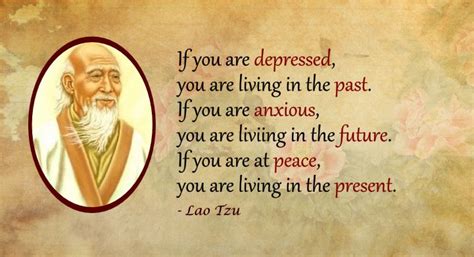|
home | what's new | other sites | contact | about |
||
|
Word Gems exploring self-realization, sacred personhood, and full humanity
Lao Tzu Daoism and the Logos
from https://www.worldhistory.org/Taoism/ This philosophy [Daoism] corresponds closely with the Logos of the Roman stoics like Epictetus and Marcus Aurelius. They claimed the Logos was a force of reason and that nothing which happened according to the Logos could be bad; only people's interpretations of what happened made those circumstances seem bad. Taoism claims the same thing: nothing is bad in itself, only our self-interest makes us think that some events in life are bad and others good. Actually, all things happen in accordance with the flow of the Tao and, since the Tao is natural, all things are natural.
Logos in Stoicism: Understanding the Divine Reason of the Universe Logos, a central concept in Stoic philosophy, represents the divine reason or rational principle that governs the universe. This Greek term, often translated as "word," "reason," or "plan," is fundamental to understanding Stoic cosmology and ethics. The concept of Logos predates Stoicism, appearing in ancient Greek philosophy. However, the Stoics, beginning with Zeno of Citium in the 3rd century BCE, developed it into a cornerstone of their philosophical system. In Stoic thought, Logos is not just an abstract principle but an active, generative force that permeates all of reality. Key Aspects of Logos in Stoic Thought Universal Reason: Logos as the rational structure of the cosmos Divine Providence: The idea that the universe is governed by a benevolent plan Natural Law: Logos as the source of moral and physical laws Human Rationality: The belief that human reason is a fragment of the universal Logos Logos and Stoic Ethics Understanding Logos is crucial for grasping Stoic ethics: Living in accordance with nature (and thus, Logos) Cultivating reason to align with the universal Logos Accepting events as part of the divine plan Practical Applications of Logos in Modern Life Rational decision-making Seeking harmony with the natural order Developing a cosmic perspective on personal challenges Practicing mindfulness and self-reflection stoa: a term defining, in ancient Greek architecture, covered walkways or porticos, commonly for public usage; open at the entrance with columns, usually of the Doric order, lining the side of the building. Stoa Poikile: "painted porch"; a series of frescoes, murals, depicting famous Greek battles; located on the north side of the ancient Agora of Athens; home of Stoicism; series of murals Stoicism: This philosophy has been mischaracterized as abhorrence of passion; not so; the emphasis is on retaining reason (logos, access to Universal Intelligence), conforming to it, and avoiding that which derails it. Oikeiosis, root. "house"; a technical word in Stoicism; ie, that one should work to collapse distinctions which separae people [ie, all live in the same "house"] between family members, friends, countrymen, all human beings. hegemonikon, 'commanding faculty' of the soul (psuchê); the centre of consciousness, the seat of all mental states. Nature as an expression of the Logos [Universal Reason, Intelligence] is an ordered realm, establishes what is right for its citizens [root of oikeion = from oikos "house, home"] Each stage of life has its oikeiosi: proper relation with itself and surroundings; from which a sense of justice might be derived; natural affinities, an appropriateness that expresses the order of Nature Liberty is not anarchy but conforming one's behavior to a universal principle. natural rights; ie, there is something about the rational power of humanity that confers special status generative of rights; the law is a rational order accessible to rational beings with affinity to live as such. Because of the Logos, nothing happens without a cause; [blind] emotion and passion contradict reason (logos) and take a man outside the province of divine will and law; the Stoic sees his place in the "home" Marcus Aurelius: "Reason and the reasoning art [philosophy] are powers which are sufficient for themselves and for their own work." Marcus Aurelius: “Things [of this world] themselves touch not the soul … nor can they turn or move the soul: but the soul turns and moves itself alone, and whatever judgments it may think proper to make, such it makes for itself [regarding] the things which present themselves to it.” Durant: "A nation is born stoic, and dies epicurean… [early religion] gives men courage to bear pain… the gods are with them… wealth grows… pleasure and ease… seek refuge in every passing delight." The apostle Paul was likely influenced by Stoic thought: See his view of God as an expression of the natural order (Rom. 1:19); and his appeal to nature as a basis for morality (Rom. 1:27; I Cor. 11:14) a "nomological" view of God's intervention in the world; i.e., the affairs of the cosmos are controlled by immutable law; a proper response to life was "apatheia" - not indifference but a reasoned resignation to the dispositive cosmic order Dr. Robinson: the stoics were deterministic in their physics not in their psychologies - ie., not fatalistic; allowed for the power of reason to alter life circumstance The Church had to officially answer acclaimed Stoicism, said that in Jesus we have the final response of God, that "pagan" thought is a distraction, no longer helpful, this was a certain "anti-intellectualism" The Church's acknowledgement of Stoicism's influence can be seen in John's gospel with a redefining of the Logos Durant: "he defined morality as a willing surrender to the divine will… goodness is cooperation with God or Nature… if evil comes it is only temporary; if we could see the whole we should see the good… [the good man] will suppress all feelings that might obstruct" reason. Durant: "[In] On Duties Panaetius laid down the central ideas of Stoicism: that man is part of a whole and must cooperate with it - with his family, his country, and the divine Soul of the World; that he is here not to enjoy the pleasures of the senses, but to do his duty… [all of which] became the conscience of Rome." Durant. "The essence of his code was self-control; [would] train his will to desire nothing that would make peace of soul contingent upon external goods." [peace of soul is key, not happiness]
|
||
|
|

